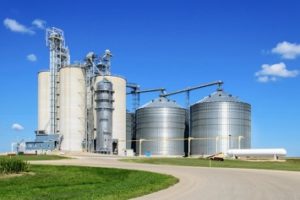OSHA has signed a comprehensive settlement agreement with Bartlett Grain Company LP that resolves contested citations issued by OSHA in 2012. Six workers were killed and two were injured as a result of an explosion at a Kansas grain elevator. Under terms of the agreement, the employer agreed to pay $182,000 in penalties. The original fines totaled more than $400,000.
Under the settlement agreement, Bartlett is required to review its safety and health management system and consult with industry experts to conduct a detailed audit of the system’s effectiveness. As well, the employer will give its internal safety manager authority to:
- Stop unsafe operations;
- Obtain a qualified third party to review new installations or material modifications to certain equipment;
- Update housekeeping and preventive maintenance programs;
- Enhance training procedures; and
- Report to OSHA on a quarterly basis throughout the term of the agreement.
The company has agreed to work with OSHA, the independent Grain Elevator and Processing Society, and the National Grain Feed Association to educate employees on hazards and share best practices for employee training and education. In addition, Bartlett will provide information on grain engulfment and rescue for first responders and community members following any grain-engulfment incidents near one of their facilities for a period of 3 years. The agreement calls for Bartlett to install and require the use of fall protection on top of railcars contiguous to, or inside a structure and within a loading zone.
In April 2012, OSHA issued five willful and eight serious safety violations to Bartlett in the wake of the fatal incident. The willfuls included allowing grain dust, said to be nine times as explosive as coal dust, to accumulate; using compressed air to remove dust without first shutting down ignition sources; and failing to require employees to use fall protection when working from heights, among other failures. Then labor secretary Hilda Solis said the six worker deaths could have been prevented if the company had addressed hazards that are well-known in the industry.

